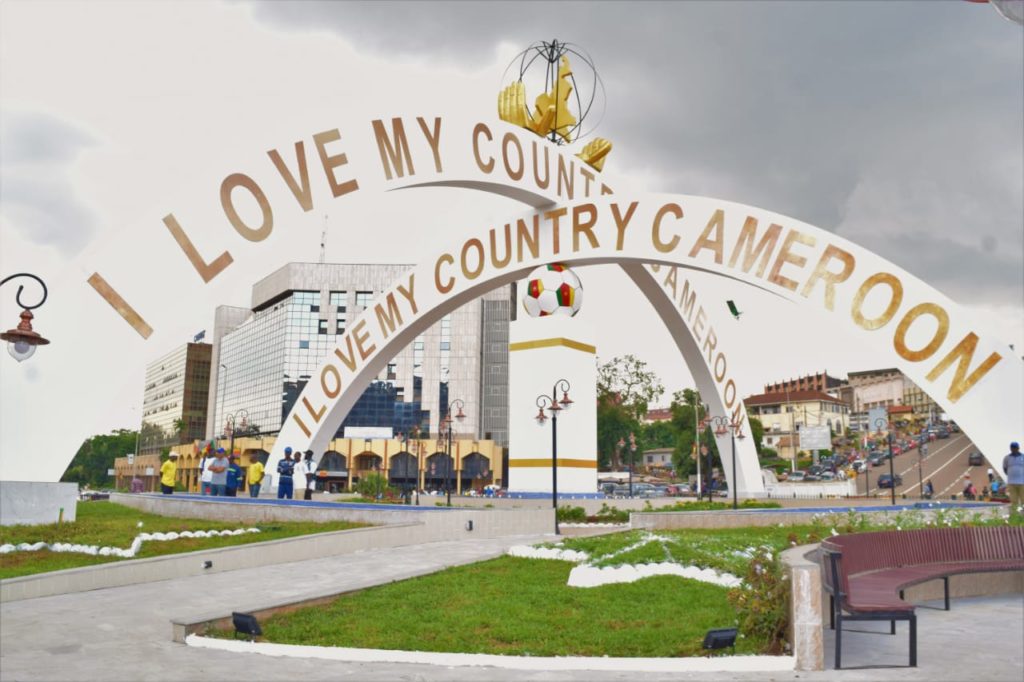In the mid‑1990s, during the death celebration of an Abuh elite named Yong Nguoh—who was a member of the Muteff mystical juju known as the Order of Nantang Yoh—the juju left its shrine in Muteff and moved majestically to the deceased’s compound to pay its last respects.
Unfortunately for the Nantang Yoh juju, it had ignored that the day it chose to appease the departed’s soul coincided with the Abuh traditional leadership’s decision to cleanse the community in preparation for the new farming season—a day on which no celebrations were permitted on Abuh soil. When the Nantang Yoh juju approached, the community sent a message informing it of that day’s tradition and its symbolism. As the juju turned around to return to its Muteff shrine, a certain Chahkfulla—notorious in Abuh for poking fun even at the most serious matters—made a scandal of the detour, telling anyone who would listen that the people of Muteff seemed unaware that, by seeking separation and autonomy, the two villages no longer shared the same way of life or culture.Chahkfulla’s memorable phrase, “Ghɨ tî gwò nte’, gwô nchînɨ̀“ (When the village was divided, the way of life and culture was also divided”), serves today as a reminder to the ruling class—and particularly to the CPDM party—that the moment President Biya was forced to accept democracy and multiparty politics in Cameroon in 1990, the country was also bound to adopt the democratic way of life and culture. Unfortunately, after every presidential election year, Cameroonians are reminded that, although Cameroon is a democracy, the ruling party’s way of life remains that of a monolithic system characterized by a monolithic mindset.
They organize elections not with the aim of ensuring alternation, but rather continuity.Cameroon has many wonders. Tall mountains. Lush forests. Brilliant people. But nothing — absolutely nothing — compares to the country’s most astonishing invention: The indestructible, industrial-grade, 24-carat, supreme deluxe election rigging machine.
Patent pending since 1984. Every election season, the government dusts it off, pumps in millions, sprinkles holy water from state TV, and unleashes a political spectacle so absurd it makes stand-up comedians look underprepared.Cameroon practices karaoke democracy. Elections have become a national gaslighting festival. A system where the plot is older than the average voter.Welcome to Cameroon — where ballots don’t choose leaders; leaders choose ballots.Chapter 1: The sacred right not to choose Only in Cameroon can you have multiparty politics with single-party outcomes. It’s democracy on the surface and monarchy in the software. Opposition leader gaining popularity? Delete.Another one attracting crowds? Disqualify.One more rising in the polls? Sorry! — administrative error. Please try again in seven years. It’s not repression, they say. It’s “electoral hygiene.” Apparently, democracy must be sterilized until only the ruling party survives.Chapter 2: The ghosts who vote religiously Our voter register? It’s not a list — it’s a séance. In Cameroon the dead register, the dead vote. And in some places, the dead vote twice.
Meanwhile living, breathing Cameroonians arrive at polling stations only to be informed they have vanished from the book of life. In biblical language: “The first shall be deleted, and the dead shall be added.”Chapter 3: Election Day — Or what remains of it Election day in Cameroon is like a bad group project: Some stations open late, others never open, some open but only for “selected patriots.” In opposition areas: ballots disappear. Security forces appear. Polling agents get headaches. Voters get excuses. In ruling-party areas: ballot boxes are so full they look seven months pregnant. But state TV declares: “Massive turnout and perfect order nationwide!” Of course they say that. If Armageddon happened on election day, CRTV would still announce: “The process is unfolding smoothly.”Chapter 4: The national mathematical miracle Cameroon is the only place where numbers fear the government. Polling stations with 200 voters return 15000 ballots.Stations with 0 turnout miraculously produce 100% support for the incumbent.
Ballot tallies travel from villages to the capital and mysteriously undergo spiritual transformation.Calculators weep. Statisticians faint. But the Constitutional Council beams proudly: “Everything is normal.”Chapter 5: The observers who observe nothing Real election observers identify irregularities. Cameroon’s special observers identify hotel minibars. After a brief tour of the lobby, they pronounce the election: “We noticed some irregularities but they were not up to the extent of overshadowing the overall outcome of the election. The election was free, fair and transparent.” Meanwhile independent journalists are running from tear gas. But the paid observers assure us: “They were jogging.”Chapter 6: The judicial confirmation—Holy Amen and Amen When the results are contested, the Constitutional Council convenes. Not to investigate. Not to analyze. But to perform the national ritual: Bless the results. Dismiss the evidence.
Threaten the opposition. Adjourn. If the opposition presents videos, witnesses, and documents, the Council responds: “We regret to inform you this material is irreceivable.”Chapter 7: Post-Election fireworks (Tear gas edition)The people march. The police march harder. Tear gas paints the sky. Bullets make guest appearances.
State TV calls these clashes: “Citizen misunderstandings.” Meanwhile the international community “expresses concern” — the diplomatic equivalent of shrugging.Epilogue: A Country that deserves better than this bad jokeCameroon’s elections have become a global meme — except nobody is laughing anymore. The youth are exhausted. Opposition parties are frustrated. Civil society is traumatized. And the ruling party behaves like a landlord who inherited the country from his great-grandfather. But beneath the satire lies a truth sharper than a bayonet: Cameroon is not short on courage. It is not short on intelligence. It is not short on patriots. It is only short on leaders willing to let citizens actually choose.One day — maybe sooner than the scriptwriters expect — the audience will walk out of the theatre. And when that day comes, no amount of ghost voters, miracle ballots, or paid observers will save the show. Because when a people finally stand up, even a 43-year script cannot hold them down. Colbert Gwain @The Muteff Factor (formerly The Colbert Factor)

